Ira Wagler on Growing Up Amish: 6-book giveaway
Today, an interview with Ira Wagler on his new memoir, Growing Up Amish.
 Ira was born in the Aylmer, Ontario Amish community and grew up in Bloomfield, Iowa.
Ira was born in the Aylmer, Ontario Amish community and grew up in Bloomfield, Iowa.
During his youth and young adulthood he spent time on a Nebraska cattle ranch, Canadian wheat fields, and in Amish communities across the country.
Ira struggled with life as an Amish person before finally leaving for good in his mid-20s. Ira is a friend of mine and has a true gift for writing; the book is a page-turner.
We’ve also got a 6-book giveaway courtesy of the good folks at Ira’s publisher, Tyndale.
Growing up Amish 6-book giveaway
There are three ways to enter the Growing Up Amish giveaway contest:
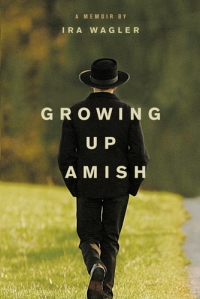 1) leave a comment on this post=1 chance to win
1) leave a comment on this post=1 chance to win
2) share this contest on Facebook=2 chances to win
3) mention this contest on your blog=3 chances to win
So do all three, and you’ll have 6 chances to win Ira’s book. If you share on Facebook or your blog, drop me a quick email at amishamerica(at)gmail.com letting know you did.
The contest runs for one week. One stipulation: books can only be shipped to US or Canadian addresses.
The six winners will be chosen at random and announced here next Thursday, July 21.
Ira Wagler interview
Amish America: You’re quite blunt in telling your story, both about yourself, and those around you—family, community, church leaders (i.e., the “mad Bishop of Ligonier”, who, unlike most in the book, remains anonymous). How have people responded?
Ira Wagler: Mostly, the response has been from my siblings, so far. And it’s been amazingly supportive. A bit of friction from one or two, but nothing that will estrange us, I think. All of them spoke of the searing trauma of going back and “reliving” those days with me. Of course, they were all on the sidelines, but they were there. Overall, I’ve been surprised and humbled by their reactions.
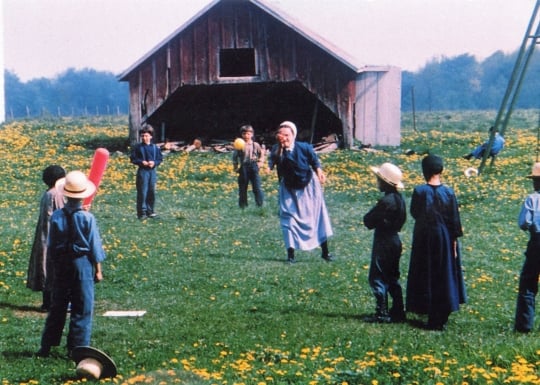
You’ve spent time everywhere from your birth community of Aylmer to Bloomfield where you grew up, to Pinecraft in Florida to Indiana. Now you live in Lancaster County. How did you end up there? And how is life in Lancaster compared to those other places?
Ira Wagler: Yeah, it is a bit strange. Somehow, even after leaving, I found myself lurking around the perimeters of a large Amish community like Lancaster. I first came in the spring of 1989, after a friend invited me out to work construction during the summer months. That was the year I started college. After that, I returned every summer and grew to love the place. I have considered Lancaster County my home since the early 1990s.
Lancaster has the gamut of them all, from the sternest hard core Amish to some of the most enlightened people I know. Some of my closest friends here are Old Order Amish. I stop by weekly at a couple of Amish homes, just to hang out drinking coffee, and to beg bread and food from the goodwife. It’s a beautiful thing, especially for a guy living alone who can’t cook or bake.
Growing Up Amish seems as much about your relationship with your family as it is about your struggle with being Amish. At one point in the book, you are excommunicated after leaving. What is your status now, and how are things with your family?
Ira Wagler: Today, I am not excommunicated from the Amish church, which would be unfathomable here in Lancaster County. But I left the Amish church in the very progressive area of Goshen, IN, where they are much more enlightened about such things.

I am close to all my siblings. Closer to some than others, of course. But when we get together, we are all genuinely glad to see each other and to hang out with each other. I can’t be thankful enough for that.
There was a time, not that long ago, when our current relationships with each other would have been impossible. But with the passing of time, as we all got older, we’ve recognized the important things in life. And that includes us, me and my siblings, accepting each other, despite our differences in lifestyles.
And what does your family think of your writing? Since your father David is one of the originals at Family Life, it seems the apple doesn’t fall far from the tree?
Ira Wagler: Yeah, I am my father’s son in that respect, for sure. My family always knew I “had it.” Had what it takes. But none probably expected me to actually make it to publication. They are all proud that at least one son followed in his father’s footsteps, if not in lifestyle, at least in writing.
In a pivotal section of your story, you describe your relationship with your girlfriend and eventual fiancee Sarah Miller. One gets the impression that an Amish first date has greater implications that an English one. By how you describe it, it almost seems asking for a first date is a pre-proposal.
But certainly not all Amish marry the first person they date? And how often do relationships end the way yours did?
Ira Wagler: Well, that varies a lot from community to community. In Bloomfield, where I lived at the time, a first date was of course not equated with marriage. But casual dating was also frowned upon, and not done much. So once a couple had that first date, that meant that the chances of them getting married were certainly greater than not getting married.
Some dating relationships fell through, here and there. That’s inevitable, in the normal course of life. But to proceed to the point we did, where we were engaged, then have that break off, that’s a bit rare in any Amish setting. Not unheard of, by any means. But rare.
Your buddies, the “gang of six”, figure prominently in the book. What is social life like for an Amish youth? And what’s become of the gang today?
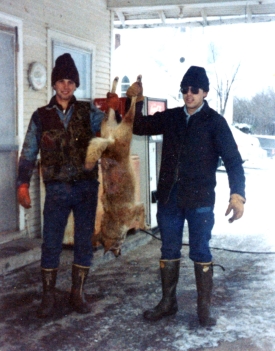
Ira Wagler: Again, social life varies greatly from community to community. In Bloomfield, the “gang of six” forged its own way, as the settlement was so young, and there had been no wild youth before us.
Of the six, only one remains Amish. Mervin is a preacher today in Bloomfield. Of the remaining five, I guess two would retain some semblance of plainness. That leaves three of us who are completely “English.”
Throughout the book you are critical but also appreciative of Amish life. You’re clear, however, that it’s not for you (some of your final words in Growing Up Amish: “I would never dream of returning”).
But in your opinion what are those strong sides of Amish society?
Ira Wagler: I would boil it down to three things, although of course there are many other factors. Family. Faith. And work ethic.
I can’t stress enough the work ethic, because it affects all else. Amish children are taught to work from almost the time they can walk. Little simple chores. And they get more responsibility as they grow. They learn to work hard, earn their bread by the sweat of their brows, and know no other way.
That’s the primary thing society has lost, at least western society. Work. Pull your own weight. Expect nothing you haven’t earned. Help those who can’t work with your free will offerings. It’s a real shame that so much of that has been lost in the outside world.
And weak sides?
Ira Wagler: The stifling legalism so prevalent in some form in all Amish communities. The Amish use the bann and shunning, because absent that, the culture could not survive. It’s a survival mechanism that has emerged and solidified over the course of many generations. I don’t fault them for it, necessarily. It is what it is. But, over time, that survival mechanism has caused a lot of deep pain and trauma for a lot of people.
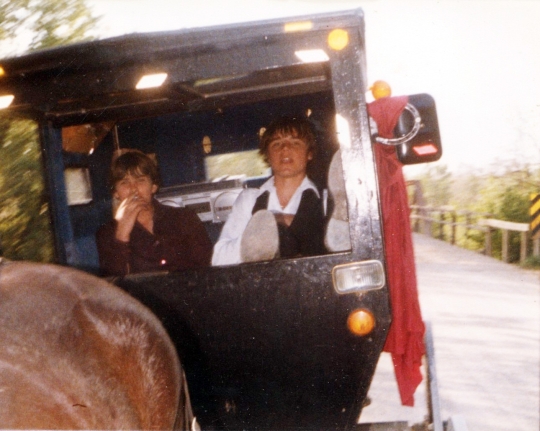
If you had somehow remained Amish, where would you be today?
Ira Wagler: Two possible scenarios. I would have believed in and held on to the Amish way in my heart, and would have risen to a position of influence and leadership (perhaps as my father did, by writing). Or I would have gone insane. Probably the latter, in all honesty.
And why aren’t you driving a horse-and-buggy today?
Ira Wagler: Hmm. Well, that’s a pretty open-ended question. For a detailed answer, I guess you’ll have to read the book.
What do you write about on your blog, and where do we find it?
Ira Wagler: My blog is my release valve. I write about anything and everything that happens to be on my mind. Or going on around me. Right now, I’m posting rather sporadically, what with my book coming out and all. You can always find me at www.irawagler.com
What is your next book going to be about?
Ira Wagler: So far there have been no discussions with anyone about the next book. Whether there is even a second book will depend on the sales of the first. That’s the market. And that’s life. I hope to be published again, of course. What writer wouldn’t? In the meantime, though, I will always post my musings on my blog.
Order Growing Up Amish at Amazon.


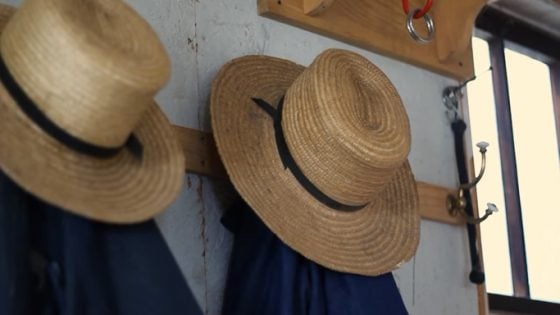

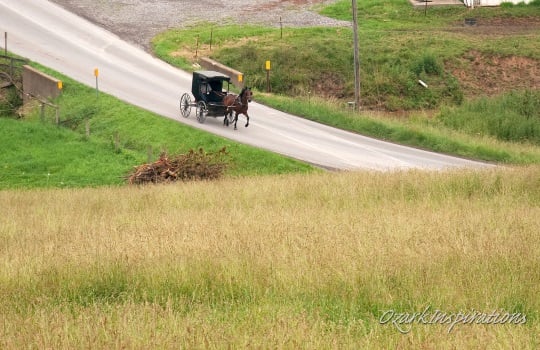
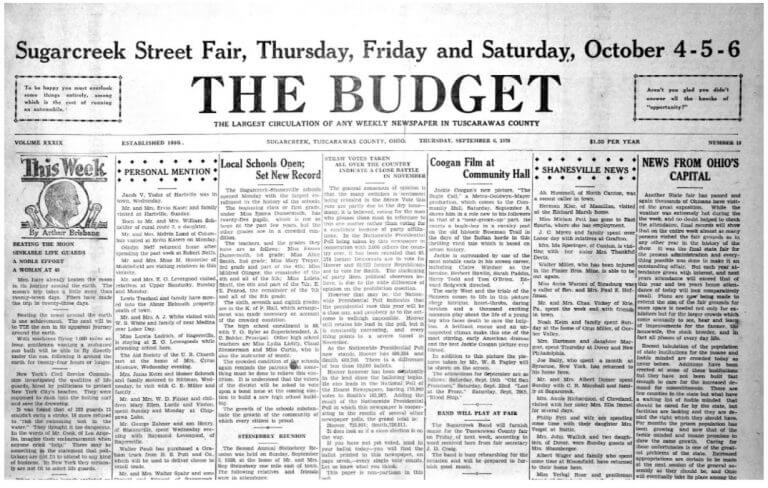
Comment on Ira Wagler on Growing Up Amish: 6-book giveaway
I would love a chance to win and read these books!
thank you so much!
Comment on Ira Wagler on Growing Up Amish: 6-book giveaway
I would love a chance to win and read these Ira Wagler’s ‘6 book giveway on Growing Up Amish. thank you so much!
The Ban and Shunning
This is a very good interview, which I expect from you, Erik! I appreciate Ira’s honesty in his answers. Obviously, I think I can see that the time when he grew up, and where, and the dynamics of family and friends influenced his decision, as well as his own personality. Has Ira joined another church?
About the ban and shunning: It isn’t just Amish who practice it. It is just the same as discipline and excommunication, with about the same effect. It usually shuts the one excommunicated out of the church and fellowship, because the person on whom it is imposed is almost always the sort of person who doesn’t understand it, nor accepts it. Most churches have dropped the formal excommunication. My own has not, but it is rarely exercised against laity. I think we should use it more, but only if bishops are willing to give proper teaching on it first. There are times to keep an angry, bitter, devisive person out of the daily life of the church, so that they do not work against the body.
I will link to this post in my blog; you should get a pingback. I have left facebook.
Magdalena, I found your description of your church’s experience with shunning quite interesting, particularly this line: “I think we should use it more, but only if bishops are willing to give proper teaching on it first.”
Ira's Book
Sounds like it would be a very good read. Please enter me in the contest. I’ll also post it on Facebook. Mary B.
Very Interesting!
I found this interview most enjoyable and I can’t wait to read, Growing Up Amish. I love reading about the Amish life..pros and cons. I also love Amish fiction.
Thank you for this giveaway.
God Bless!
Love Amish books!
I would love to read these. I try to read as many as I can! Thanks
I would love to win this contest Please enter me
Love to win this book! sound great. I am also re posting on facebook. thank you
I would loved to win this book. I love reading about the Amish and love their
recipes.
i entered the link for this contest on FB
amhengst
Just Read!
The comment title is my motto (workig in a library, it’s almost a “must”). I am hoping to more than JUST READ all 6 books, should I win. Thank you so much for the opportunity!
This was an intersting interview. I would ask Ira if he thought, after so many years of being “English”, that “family & work ethic”, without faith (or at least without being a part of an ORGANIZED “faith”/religion), is worth pursuing. Like Magdalena, I wonder if he’s joined another church. Or is a personal pursuit of faith (not in a community of like-minded believers) adequate for a successful, happy life?
Alice Mary
Erik — What do think Ira meant by this?
“Today, I am not excommunicated from the Amish church, which would be unfathomable here in Lancaster County. But I left the Amish church in the very progressive area of Goshen, IN, where they are much more enlightened about such things.”
It sounds like he’s saying that excommunication is unfathomable in Lancaster, but I know that can’t be what he meant.
Hi JP, not to speak for Ira, but it sounded like he was saying that someone in his position–having left the Amish church and living English–would definitely find himself in the Bann if he left a church in Lancaster County. And that the Goshen church he left is less stringent and did not excommunicate him. So rather the reverse.
Ira add to or correct me if you happen to read this.
Hello JP59
JP59
I think what he is saying is the people in Lancaster could not imagine how he is not excommunicated. Meaning if he would have left in Lancaster County instead of Goshen, he would have been excommunicated.
Erik and Tom, you both nailed it. That’s what I meant.
Thank you all for the quick responses! It makes perfect sense.
Sorry Erik
When I went to reply to JP59 your response to the question was not showing. Sorry
No worries Tom, near-simultaneous replies. Thanks for the assist!
I would love to read your book. I’m suprised that you are not under the bann. That would be difficult. I’m interested to read about your English friends and trials and tribulations (i.e. getting a driver’s license). Thanks for a great interview and giveaway. I’m from Ohio. kristiedonelson(at)gmail(dot)com
Can’t wait to read the book!
Comment on Ira Wagler on Growing Up Amish 6 Book giveaway
I hope I win the book but either way it is one I can’t wait to read.
Visit to Amish Area in Aylmer Ontario
About a month ago I toured the Amish area in Aylmer Ontario and would love to get a copy of the book about Ira.
comment on Growing Up
Sounds like a geat book. I certainly hope to win it!
Thank you for revealing your private story. Perhaps it will help others understand their own journey better.
Book Giveaway
Erik, Please enter my name in your book giveaway. The interview is most fascinating and makes one really want to read the book. Thanks for giving us folks a chance to win.
I would love to learn more
I would love to learn more about the Amish way of life.I can’t get enough of these type of inspiring books! This is sounds like such a great book it would be incredible to be able to hear about the Amish through another persons life!!!
-Stacey K. Cole
Interesting
Sounds like a interesting read. I am looking forward to reading it.
All of this is so interesting. I love reading about the Amish. Thanks for the giveaway.
Sounds like a very good read. Would love to have them. Thanks.
Sounds like a interesting book. I am looking forward to reading it.
Hi Eric,
I also would love to win this book, sounds very interesting…..and sounds like it’s coming from the horse’s mouth as the old saying goes, so we can know it is the truth right ?
Thanks for the chance to win and I also will post on FB…..
I have enjoyed reading Ira’s blog for some time, and would really enjoy owning his book. Thanks!
Wonderful book!
I just got the book yesterday at the local Walmart here in rural Sussex County in NW New Jersey and have read almost half. It’s a wonderful, heart-felt, and real remembrance – just what is missing in so many writings today. Thanks, Ira! And you’re so correct about the “feel” of the book on your website! A wonderful reading experience. And, thanks Erik, for your website where one can reference so many of the details of things Ira mentions in his book and so much else Amish-related. Thanks, guys, so much!
Brian, my pleasure, and I’m glad you are enjoying Ira’s book. I’d be interested in hearing from you or anyone else if there are any other suggestions for areas to cover on the site. I’ve got a few plans on expanding it, but happy for any feedback.
Would love to win this book and will purchase it if I don’t win it.
My background is plain(central Illinois), although not Amish. I am no longer affiliated, but highly respect and enjoy being with them. We moved back to my hometown and and are very happy there. Thanks so much for this website.
This book has received wonderful reviews. Please enter my name
in the drawing.
Please enter me in the give-away too! great interview and I am looking forward to the book! now for the facebook thingy…. 😉
Ira Wagler's book
This sounds like facinating reading. I have always been interested in the Amish Way of Life. I found out recently that my family was brought to America through the Brethren in PA as indentured servents (?) and my grandmother grew up in the Brethren community in Ontario. I can’t find out more as both my mom and grandmother have passed away.
Such an interesting read!
Please enter me in the giveaway! Thanks!
Add Me to the List of Hopefuls, please!
Would like very much to read this book, Ira. I will post this to Facebook, but have no blog at present.
Please don’t hold this against me!
The interview was very interesting, as are all Amish America
interviews I’ve read. I was especially interested in the
answers to the questions about the strong sides and weak sides
of Amish life today when Wagler stated, “absent (the bann and
shunning) the culture could not survive.” As I continue to
learn about Amish life, I am becoming more inclined to think
that what we English see as the strong sides of Amish life would not be nearly as strong without the sides we think are weak. I’m
hoping to learn a little more about this as I read Wagler’s book.
This book sounds like it’s a good balance to ones other ex-Amish
have written that are so negative about Amish life.
contest
Please enter me in the contest.
Ira does some great personal narrative stuff, but this response leaves a lot to be desired.
“I can’t stress enough the work ethic, because it affects all else. Amish children are taught to work from almost the time they can walk. Little simple chores. And they get more responsibility as they grow. They learn to work hard, earn their bread by the sweat of their brows, and know no other way.”
He uses it to set up a critique of western culture. But it’s a gross generalization that doesn’t say much about the Amish other than to sound good as a western culture reference point. It would be nice to be able to expect better from an insider.
The Amish are good at manual labor but there are many other ways of being productive and participating in civilization, like being an engaged citizen, or a doctor, or a scientist, or policeman, or god forbid, a politician.
The Amish get a pass on these kinds of values. One might even refer to them as fat and lazy free loaders in this regard. This is a real dilemma for the Amish as a society; how do you develop “citizen” skills when you’re a non-participant? The critique that the Amish are a cult may be too harsh, but at the same time, they do fly a bit close to that particular flame. Too bad Ira’s response employed a cheap, worn out western cliche instead of actually taking us inside the more complex, real deal.
Elam, you are a bitter man. Ex-Amish and bitter. It shows in all your writings, and it shows in who you are. You have a history of taking cheap shots at the Amish. You even criticized them publicly for calling the cops after their children were murdered in that devastating school shooting a few years back. I have nothing to say to you, except make peace with who you are and with your culture. You are from them, and nothing you can ever say or do will deny that fact.
I am bitter, especially because as a “non-conforming Amish person” I’ve embraced a society that is indifferent to my identity and heritage. The primary issues that shaped and influenced my life aren’t recognized by the culture that I’m a part of. That really p****s me off. I’m truly a “lost sheep” in the sense that western culture of which I’m a part of, doesn’t validate my existence. For example, you can go to the library and pretty much find any subject under the sun expounded upon in great detail. But the issues of my life you won’t find. Neither will you find the issues of my people. Oh, there’s books about the Amish, but they’re not really about the Amish. The writers in western culture who write about the Amish have very little interest in writing about the subject they’re supposedly writing about. The Amish are only a prop, not the actual subject. Western culture is entirely too vain to see anything other than its self. It’s always about “them”.
I can accept that from the general populace. But even among those who one might expect to be more insightful, there’s a tendency to overlook the subject matter and to instead, dutifully hold the mirror up to the almighty Mammon, otherwise known as the expectations and whims of the dominant culture.
The end result of this is that my people, for all intents and purposes, become a non-entity. Here’s a real life example of that;
During my sons’ junior year in high-school at a school assembly called to celebrate a successful fund-raising event, faculty divided into two teams and competed to guess the most popular responses to survey questions solicited from the student body prior to the event. The third most popular response to the question, “what’s the worst thing about Lancaster county?” was “the Amish”. When the teams of faculty faltered in guessing the correct response, the students prompted them, shouting from the bleachers “the Amish, the Amish”.
My sons Amish identity aside, the failure of the faculty and students who organized the event to recognize how inappropriate that response was going to be as a part of the event was bad, but it’s not nearly as damning as the fact that an event like that could occur and nobody stepped forward to mitigate it and to clarify that it was not a view school officials wanted to promote. When I called the school to complain the principal denied any wrong doing had occurred. (keep in mind that they went home to their Amish mother after this event)
And another one;
About 5 years ago my now ex-wife’s 80 year old father was missing for 24 hours. He left his home in Leola in the morning with a horse and buggy to attend a family gathering in Reinholds. It should have taken about an hour to arrive. He never showed up. He had become lost and wasn’t found until the following morning. The family was distraught when nightfall arrived and he hadn’t been found. A non-Amish friend and I spent several hours driving around looking for him. A severe thunder storm with torrential rain passed through the area around eleven PM, which made driving hazardous and limited visibility, so we went home, planning on renewing our efforts in the morning.
Because I couldn’t sleep, and because I needed someone to talk to, I called another non-Amish friend. Even though it was now 1 AM, he generously helped me plan how to maximize our efforts for the morning. He counseled me to call the police, even though my wife’s family had already reported Dad missing, he recommended trying to elicit a specific response of if and when they would issue a missing person alert and what additional measures they could enact.
I took his advice and was told by police that they had to wait for 24 hours to pass before taking any action. That decision, they told me, would be made by the officer coming on duty at 7 AM.
Having taken the “official response” part of our strategy as far as I could for the time being, I turned my focus to getting “missing person” fliers printed and distributed. The new day that was approaching was a Sunday, so I taped fliers to church doors and handed them out to early risers,wherever I found them.
At some point that morning I received a disorienting sequence of phone calls. First the day shift officer called to say they had put out a missing person alert, but they wouldn’t be able to organize an official search. A short time later my friend called me to say he had just spoken with the police and they were dispatching several local fire companies to aid in the search. I didn’t have much time to think about it at the time, but I recall saying “what did you say, that I hadn’t said, to create such a different response?” Within seconds the officer called back to inform me of the revised plans.
Even your response to me (not with standing that you also are a “non-conforming Amish person” was all about denying my participation. You insinuate that I’m somehow reluctant to embrace my identity and heritage. I’ve written letters to the editor in which I refer to the Amish as my people. What more do you want, or were you just taking a cheap shot?
As for your implying that my questioning the Amish calling the police at Nickel Mines, is a beyond the pale position to take, I suggest doing so is honoring what their faith is all about in the first place.
Here’s an example of what someone with the Amish people’s interests might talk about in regards to Nickel Mines. The intent and purpose of Amish society is inextricably associated with the concept of being the “salt of the earth”. It’s a religious term derived from the practice of using salt as a preservative for meat. Once salt is used in the curing process, it loses its’ value, hence the Amish reasoning to maintain their separate and apart status. If they become too intermingled with the larger society, they, like used salt, will lose their ability to be a preserving agent. What concerns me about Nickel Mines is that it was a lost opportunity for the Amish to be true to their faith. The Amish have many examples of what their faith expects of them in circumstances like Nickle Mines. Most notably in recent history is the famous story of the Hostetler massacre, in which the father asked his sons to lay down their guns. In Anabaptist lore there is the story of Dirk Willems who escaped from his persecutors. Willems was pursued across a frozen river by one of his assailants. When the assailant fell through the ice, Willems returned to rescue him, whereupon he was re-arrested and executed. As a Amish person, these stories indicate that surrounding the school with heavily armed police was an utter and complete failure to live up to my faith. One of the girls was revered for having asked the shooter to, “shoot me first”. As an Amish person, shouldn’t my number one priority have been to stand with that girl?
Instead, what happened is that the state became the preserving agent for the Amish. This sets the “salt of the earth” concept on its head. As an Amish person, this should give me sleepless nights. Pretending that instant forgiveness was a big deal in this scenario is about as violent a disregard for Amish values as the original assault was. A basic “passing the smell test” question about the instant forgiveness malarky is; “where was the faith that makes the “instant forgiveness” possible before the shooting started?
Ignoring what the Amish faith calls its adherents to, is demeaning and contributes to turning them into an unreal entity. It’s treating them as if they were some ornament of little consequence. We all know what happens to those kinds of ornaments, they end up in the trash. Is that what you want for your people?
You are bitter. I don’t question a single factual incident you related. Not one. I know you were deeply hurt. But I can tell you from my own experiences that hanging onto bitterness, however righteous you are, will destroy you. It just will. I apologize for my abrupt response previously. I won’t apologize for calling it like I see it.
You will destroy yourself. Or at the very least, be far less than you could be. Let it go. Easier said than done, I know. I will also say this without apology: Until you can appreciate and acknowledge the good things about the Amish without any qualifications, you will never be truly free. Never.
Please enter me in the contest. I’d love a chance to read this book!
Elam and Ira,I’m not very smart, but I wanted to point out something: Do you know what just captured my attention about your posts? Besides the obvious tension, I was struck by a stark similarity. You’re both Ex-Amish, and both of your posts demonstrate an intolerance for injustices and a knack for defending your point of view, or thoughts. Then I realized that these characteristics are, from my understanding, at odds with the Amish thinking and way of life. Perhaps this characteristic/personality type is a common denominator to many of those who leave the Amish.
Hopefully things will look better in the morning. We’re all in this together.
I love peace. I want everybody to be friends and treat each other kindly, you know? Never mind. I should have been minding my own business anyway. There’s something “off” – something that defies reason and sanity that is present, making it completely impossible to comprehend. I’m still trying to shut my mouth. I’m outta here – signing off.
Amish Life
I really appreciate that Ira has written about the Amish lifestyle in a realistic manner. So much of the time, the Amish lifestyle is romanticized to a point where it isn’t anything like what is true about their culture.
I would love to win these books. I read everything about the Amish I can find, but really appreciate nonfiction when it is available.
Please enter me in the contest for a free book. I will post this on Facebook as well. I’d say my blog too but I don’t know when I will be updating that again so we will just go with here and FB.
I do have a general question. If a person is excommunicated from their community, are they then excommunicated from all Amish communities? I am just wondering since Ira says he has moved around a lot to the outskirts of many communities. I realize he isn’t excommunicated but if someone was….
Thanks for the interview, Eric. It was interesting!
Karen, a good question. Generally bishops will honor the decision of other districts, and excommunication would apply across congregations, so no it is not just your own church district. Ira’s story is an example of that, and one of the most interesting episodes in the book, I thought.
after reading the interview, my interest has been peaked….=-D would love to win this book and learn more about why he left. Thank you for the chance too.
Erik – please enter my name in the drawing for the book. Thanks
Giveaway
I thoroughly enjoyed reading this…it gives wonderful insights into a culture I know little about except through reading. Thanks for sharing!!! I would love to be entered to win the books margie at mijares dot net
I’d love to get one!
Would love to read this book especially coming from the perspective of the child who’s choosing a different path than his parents. Sounds very interesting.
I have the book on my Kindle and love it! Ira does an excellent job of telling his story!!
I’m glad to see I’m not the only Kindler on here! I have a sample of Erik’s book (Success Made Simple) on my Kindle and look forward to buying and reading the whole thing once I finish An Amish Paradox (which is not available as an e-book, alas).
BTW — Erik, please don’t include me in the contest, since if I read Ira’s book (and I very much expect that I will), I’ll read it on Kindle. I don’t read paper books anymore unless that’s the only format they’re available in.
Growing Up Amish on Kindle
JP, I am a Kindler too. I guess I’m techno-selective like the Amish, but not quite to the same degree 😉 However I broke down a few months ago and got one. Really like it. It’s a “new modern technology”, but in some ways it’s quite low-tech–black and white screen, simple interface, few bells and whistles. I also read Ira’s book on it.
I’ve got the 3G internet feature, which is also very nice when you’re on the go. The browser is pretty clunky to operate, but having free internet in most places where there is cell phone coverage I’ve found to be pretty handy. Though I wouldn’t be able to do much blog posting or do more than very basic comments with it 🙂
Erik, isn’t it great? I originally got mine because I’m often reading big nonfiction books, and it’s hard to do that comfortably for long stretches of time. Once I got it, I began to appreciate the space-saving characteristics (we were pretty much maxed out when it came to book storage) and especially the ability to get free samples of books I’m considering. Plus all the public-domain classics for free or almost free are terrific.
Of course, if someone gave me a million dollars to give up the Internet, I’d have to figure out a way to survive without any new Kindle books. 😉
Would love to win Ira’s book ……please enter me, as well. Thanks Erik!
Would so love to add this book to my collection of books sharing he values and problems of Amish life. We “English” have much to learn from the Amish!
Great interview Erik and Ira. Thank you for the chance to win a copy of Ira’s book! Best wishes on your publishing journey, Ira.